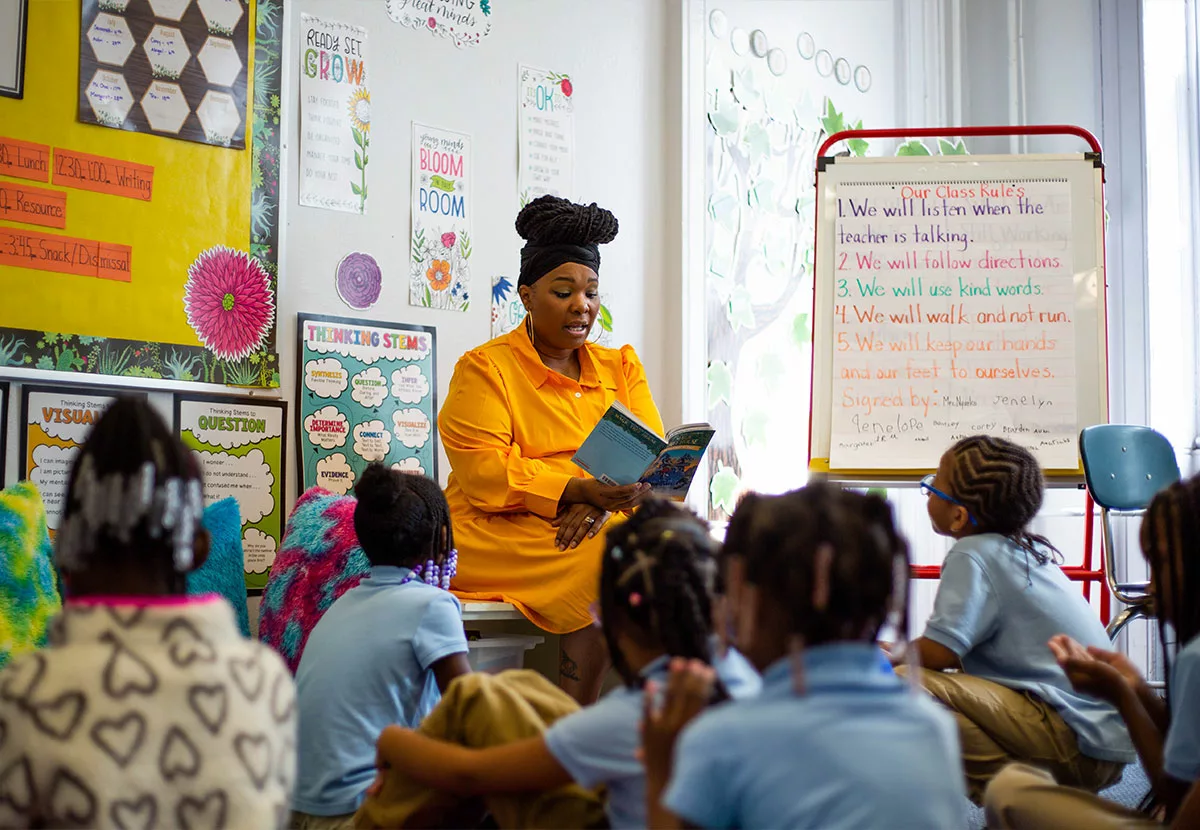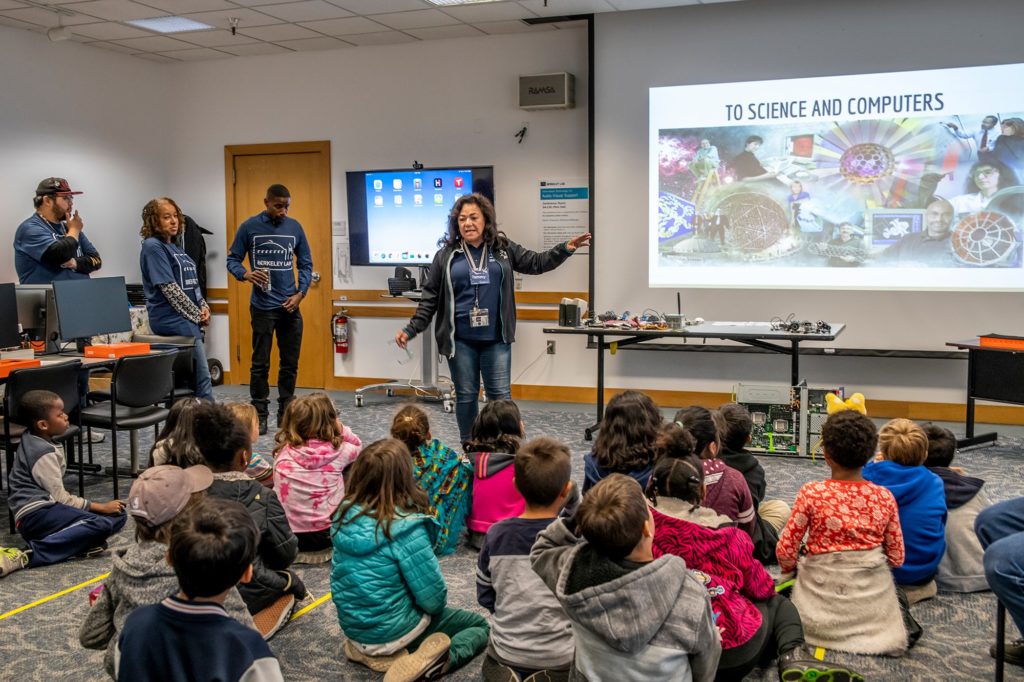How Kindergarten Prepares Children for a Smooth Transition to Grade School
Wiki Article
Elements to Consider in Deciding On Independent School: Recognizing What Each Organization Has to Deal for Your Kid's Growth
Selecting a private college for a child entails mindful consideration of several variables. Parents have to analyze the scholastic curriculum and mentor approaches of numerous establishments. They ought to additionally check out after-school activities that could enrich their kid's experience. Furthermore, understanding the school's society and values is vital for positioning with family members ideas. As economic effects play a substantial duty, it is vital to consider tuition prices against offered scholarships. How do these components shape a kid's development course?Academic Curriculum and Training Approach
When choosing a personal school, comprehending the scholastic curriculum and training ideology is essential, as these components significantly affect a kid's academic experience. Parents ought to check out the college's technique to teaching and the topics provided, as this can differ significantly amongst establishments. Some institutions might adopt a typical curriculum concentrated on core topics, while others could stress project-based learning or interdisciplinary research studies.Additionally, the training ideology can form class characteristics and student involvement. Colleges that prioritize a student-centered approach commonly foster important thinking and collaboration, while those with an extra organized environment may focus on self-control and fundamental abilities.
Extracurricular Activities and Enrichment Programs

Importance of Diverse Activities
While scholastic excellence is frequently prioritized in private schools, the significance of varied tasks, consisting of after-school activities and enrichment programs, can not be overstated. These tasks play a crucial duty in a child's all natural advancement, supplying possibilities for imagination, critical reasoning, and team effort. Taking part in different searches permits pupils to explore their interests, find new passions, and develop crucial life abilities, such as time monitoring and self-control. Furthermore, diverse activities can foster a feeling of belonging and area, enhancing the general school experience. By getting involved in clubs, sporting activities, and artistic undertakings, students not only enhance their education and learning however additionally develop memorable experiences that add to their individual growth. Varied tasks are important to cultivating well-rounded individuals.Influence on Social Skills
Just how do extracurricular activities and enrichment programs influence a child's social skills? These programs give necessary possibilities for kids to interact with peers outside of the conventional class setup. Participating in arts, clubs, or sporting activities promotes conflict, synergy, and communication resolution. Kids learn to navigate varied social settings, enhancing their ability to establish and create relationships compassion. Furthermore, getting involved in various tasks encourages self-confidence, as children tackle brand-new obstacles and obligations. As they collaborate on projects or contend in groups, they also acquire useful experience in management and collaboration. Inevitably, a rich range of extracurricular offerings contributes considerably to a child's social development, preparing them for future interpersonal interactions in both academic and personal contexts.School Society and Worths
Understanding the institution society and worths is necessary for parents examining exclusive education alternatives, as these components considerably influence a youngster's overall experience. Each establishment embodies distinct ideologies, traditions, and social standards that form students' day-to-day lives. A college that highlights inclusivity might promote an encouraging environment, motivating kids to establish compassion and regard for diverse histories. Conversely, establishments that prioritize academic excellence may produce a competitive ambience, encouraging trainees to go for high success.Moreover, the placement of an institution's worths with a family members's beliefs can enhance a youngster's sense of belonging, reinforcing favorable actions and perspectives. Parents need to investigate the college's goal statement, examine its disciplinary plans, and observe trainee communications to evaluate the fundamental society. Inevitably, a school's culture and values considerably impact not only scholastic success yet also individual growth, equipping youngsters with important life skills for their future.
Class Size and Student-Teacher Ratio
Class dimension and student-teacher proportion play a vital duty in the educational experience provided by independent schools. Smaller sized classes usually cause enhanced private attention, promoting better trainee interaction and understanding. Study indicates that these aspects can substantially affect discovering outcomes, making them crucial considerations for parents.Benefits of Smaller Sized Courses
Smaller sized class sizes significantly boost the academic experience by cultivating much more tailored interest from instructors. In these environments, educators can tailor their instruction to meet specific student requirements, enabling a much deeper understanding of the product. With less pupils, educators can more conveniently determine those that might be having a hard time and give immediate assistance. This close communication can cultivate more powerful connections between instructors and trainees, creating an encouraging atmosphere favorable to discovering. In addition, smaller courses often promote higher participation, as students may feel a lot more comfy articulating their concerns and thoughts. This dynamic motivates collective knowing and improves total classroom engagement. Inevitably, the advantages of smaller courses contribute extremely to a well-rounded instructional experience that prioritizes student development and development.Impact on Understanding Outcomes
The advantages special info of smaller courses expand beyond individualized interest, considerably influencing learning end results. Research study regularly reveals that a lower student-teacher ratio promotes enhanced engagement, allowing teachers to tailor guideline to private needs. This environment urges active participation, critical reasoning, and deeper understanding of the material. In smaller settings, instructors can better identify and attend to discovering spaces, leading to enhanced academic performance. Grade School Peoria. Furthermore, trainees often really feel a lot more comfy expressing their ideas and asking inquiries, which can additionally enhance the discovering experience. Alternatively, larger class dimensions might restrict communication and comments, potentially hindering student growth. Consequently, when reviewing independent schools, households need to take into consideration course dimension and student-teacher ratios as substantial factors impacting their child's academic successNeighborhood Engagement and Parental Participation
Exactly how can area involvement and adult involvement improve the instructional experience secretive institutions? These aspects play a necessary role in enhancing the discovering environment. When parents actively get involved in school tasks, they foster a feeling of belonging and assistance among trainees. This involvement can take various types, such as volunteering for occasions, participating in meetings, or signing up with committees, which not just strengthens the college community but additionally boosts interaction in between educators and households.Neighborhood engagement extends this support by connecting the school with neighborhood companies, companies, and cultural establishments (Grade School Peoria). Such collaborations provide pupils with distinct knowing opportunities, consisting of workshops and teaching fellowships, which contribute to their overall development. Furthermore, institutions that focus on these links commonly produce a more inclusive environment, allowing diverse perspectives to be shared. Ultimately, area interaction and adult involvement serve to produce a collaborative and helpful setting that adds positively to trainees' academic and social success
Financial Considerations and Scholarships
Navigating the monetary landscape of independent schools can be an intricate procedure for families. Tuition expenses differ significantly, frequently influenced by factors such as area, facilities, and the institution's reputation. Families must analyze their economic circumstance, thinking about not just tuition however additionally extra expenses like attires, charges, and after-school activities.Several independent schools offer scholarship programs aimed at drawing in diverse trainee populations - Kindergarten. These scholarships can alleviate monetary problems and make high quality education and learning available to households with differing revenue degrees. It is crucial for moms and dads to ask about the accessibility of need-based and merit-based scholarships and recognize the application processes entailed
Additionally, some schools give flexible repayment plans that can relieve prompt economic stress. By examining all monetary facets and discovering scholarship opportunities, family members can make informed decisions that align with their budgetary constraints and educational objectives.
Often Asked Concerns
How Do Colleges Assistance Trainees With Discovering Disabilities?
Schools support students with discovering handicaps through personalized education and learning click for source plans, specialized mentor approaches, and added resources. They often give customized treatments, accessibility to support team, and inclusive atmospheres to foster psychological and scholastic development.What Is the College's Technique to Discipline and Actions Monitoring?
The college's technique to discipline and habits monitoring highlights favorable reinforcement, clear assumptions, and restorative techniques. Team actively engage pupils in conversations regarding behavior, promoting a helpful environment that urges personal responsibility and responsibility.Just How Do Colleges Handle Student Changes, Such as Relocating To Greater Qualities?
Colleges commonly supply organized support during trainee modifications, consisting of alignment programs, mentorship chances, and tailored scholastic preparation. These measures intend to alleviate anxiety, advertise change, and guarantee pupils are prepared for the challenges of higher grades.What Are the Institution's Plans on Technology Use in the Classroom?

Just How Do Schools Examine Pupil Development and Provide Feedback to Parents?
Schools analyze student progression via normal evaluations, including tests, projects, and classroom engagement. Responses is given to parents using report cards, parent-teacher seminars, and on-line portals, guaranteeing continuous interaction about each child's scholastic advancement.
Report this wiki page